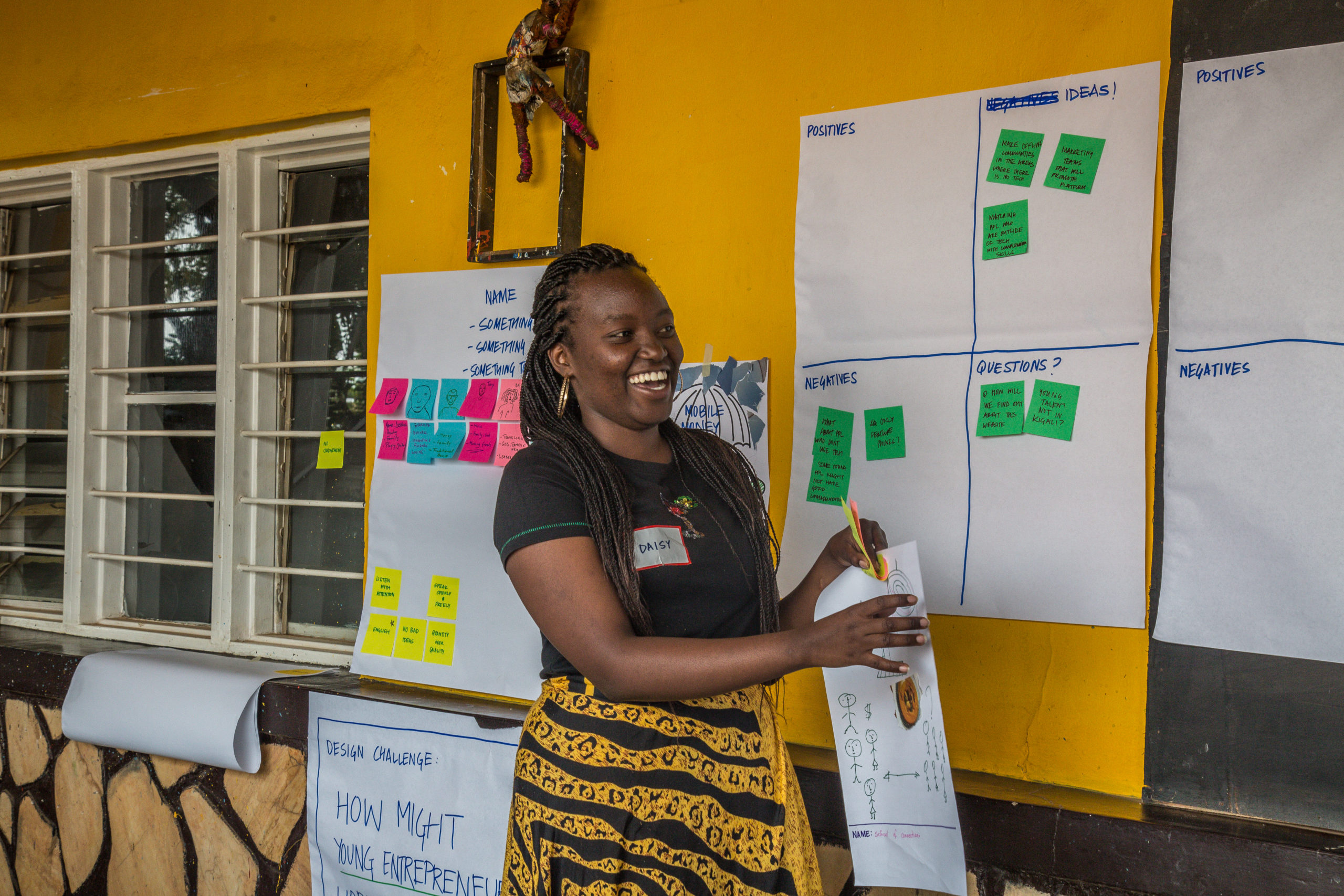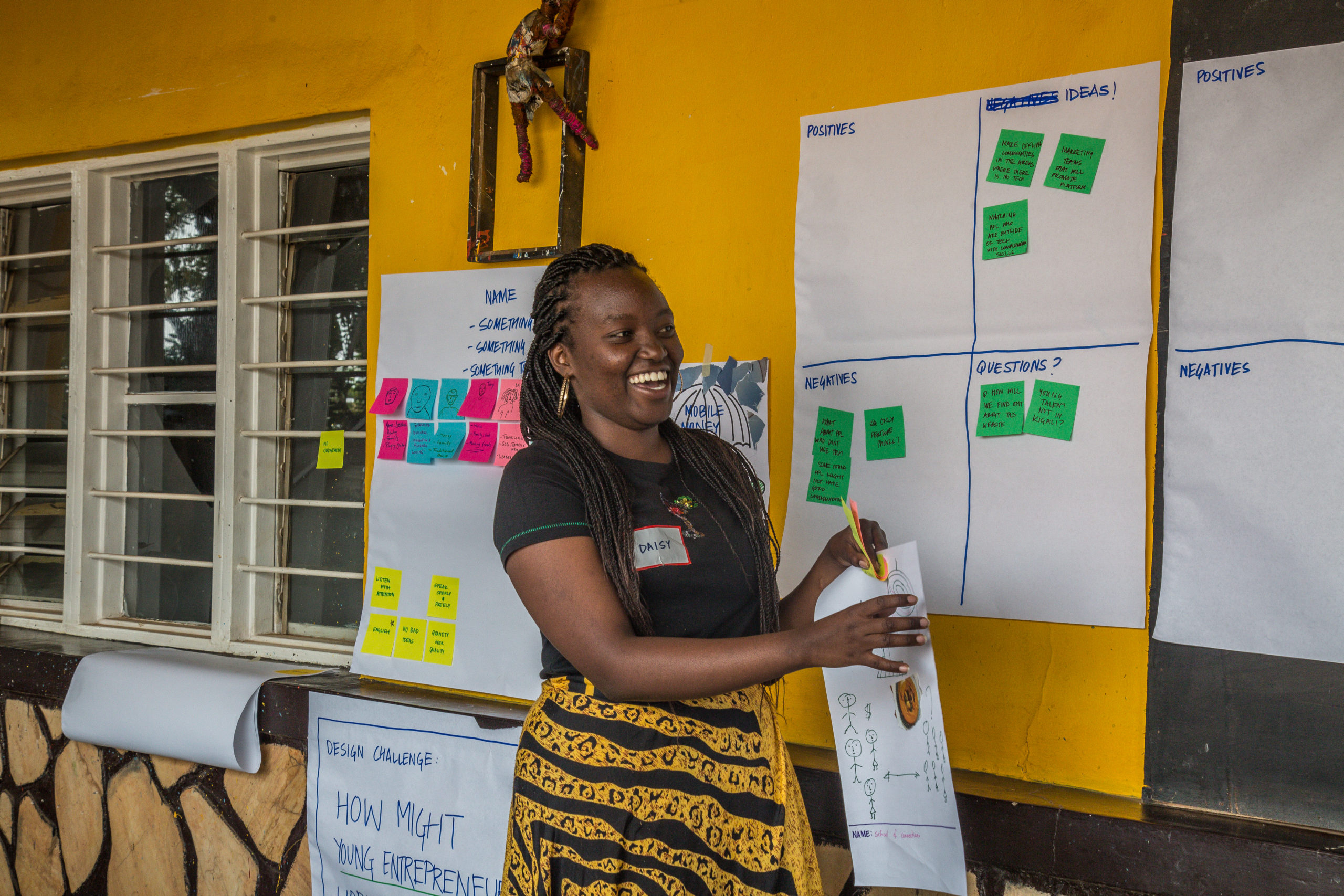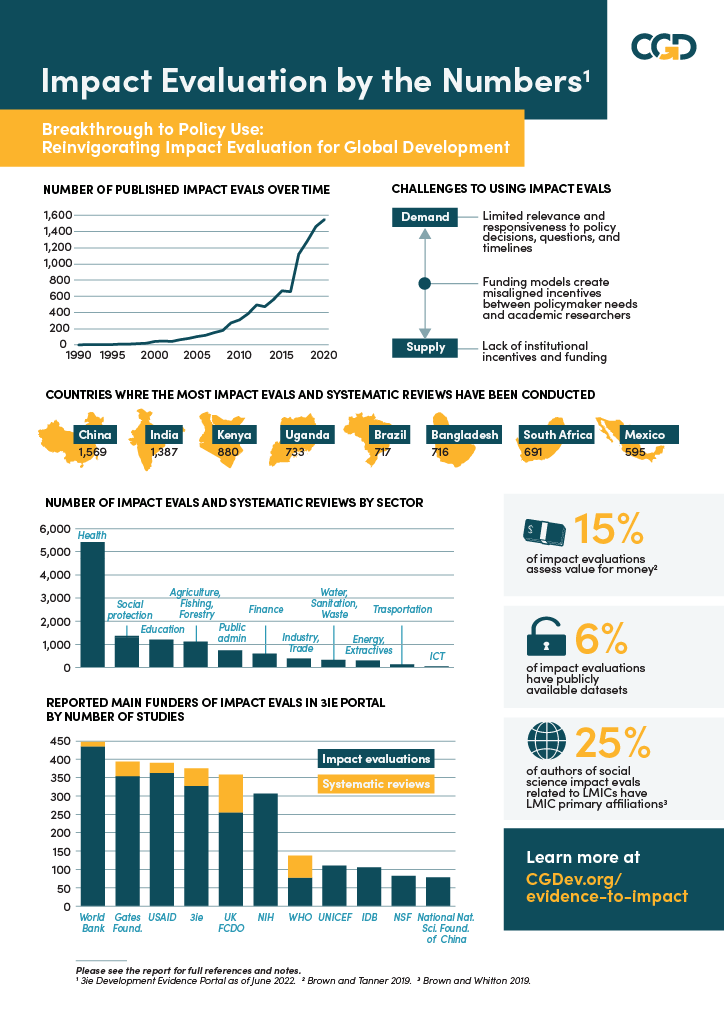Ideas to action: independent research for global prosperity
Breakthrough to Policy Use: Reinvigorating Impact Evaluation for Global Development
Final Report of CGD's Working Group on New Evidence Tools for Policy Impact

About the Working Group
Better use of evidence in policymaking could improve lives and save hundreds of millions of dollars in public and aid spending. It’s now quicker and more affordable than ever to rigorously gather evidence. Yet only a fraction of all development programs are evaluated, and far too often, policymakers lack the solid, policy-relevant research they could use to make better decisions. Why the gap between evidence and action? The working group report charts the barriers that prevent research from informing policy and lay outs what researchers and funders can do to transform the evidence landscape.
Featured Work
Final Report: Breakthrough to Policy Use: Reinvigorating Impact Evaluation for Global Development
Julia Kaufman et al.
Leveraging Knowledge Generation for Policy Impact: Recommendations for the World Bank
Amanda Glassman et al.
Mainstreaming Evidence Use through Locally Led Development: Recommendations for USAID
Janeen Madan Keller et al.
Investing in a New Era of Evidence-Informed Decision Making: Recommendations for Philanthropies
Ruth Levine et al.
Final Report Brief: Reinvigorating Impact Evaluation for Global Development
Julia Kaufman et al.





Featured Work
Contact
For more information, contact jkaufman@CGDEV.ORG
Contact
For more information, contact jkaufman@CGDEV.ORG
Experts

Amanda Glassman
Amanda Glassman was the Center for Global Development's executive vice president, a senior fellow, and also served as chief executive officer of CGD Europe. Her research focused on...

Janeen Madan Keller
Janeen Madan Keller is Deputy Director of the Global Health Policy Program and a Policy Fellow at the Center for Global Development, where she leads policy-oriented research focuse...

Julia Kaufman
Julia Kaufman was a policy analyst for Global Health Policy at the Center for Global Development. Before joining CGD, she worked on global health research projects related to front...

Ruth Levine
Ruth E. Levine, Ph.D., is Vice President and Chief Learning Officer at The David and Lucile Packard Foundation. She is a development economist with more than three decades of exper...
Experts
Acknowledgments
Funding Acknowledgement
CGD is grateful to the William & Flora Hewlett Foundation and individual CGD funders for their support of this work.
Sign up for our newsletter








